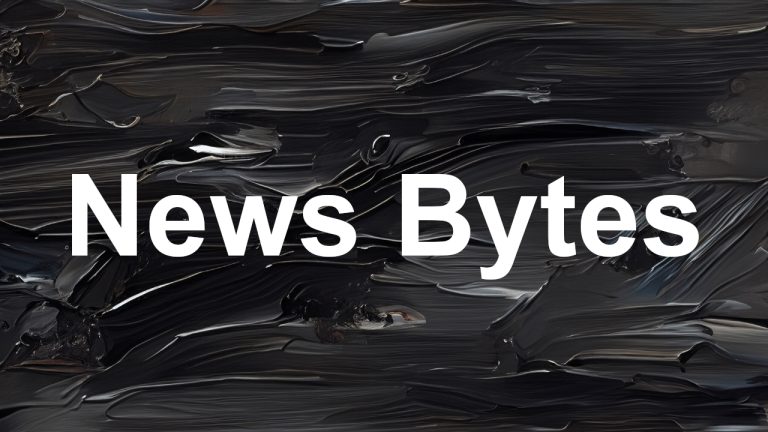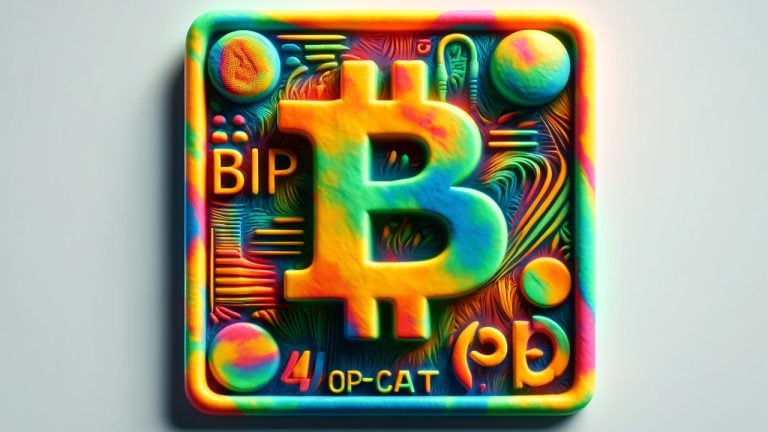
The new bridge lets users withdraw Bitcoin even if most Cardano nodes become malicious.
The upcoming Cardano-Bitcoin bridge, based on the Grail protocol, may be a first step toward providing decentralized finance (DeFi) applications that are secured by Bitcoin, documents from the bridge’s underlying protocol reveal.
On Oct. 24, Emurgo, the development team backing Cardano, announced that it was developing the bridge in partnership with Grail’s developer, BTCOS.
In an X post on the following day, Cardano founder Charles Hoskinson clarified that the network will eventually host DeFi applications secured by Bitcoin, adding that, “With babel fees, Bitcoin developers can develop Hybrid Cardano/Bitcoin applications in Aiken and pay their transaction fees in bitcoin.”

StarkWare is looking to reduce its already cheap fees as it anticipates a boom in blockchain activity and gas fees in the coming months.
StarkWare CEO Eli Ben Sasson says he expects transaction speed on the firm’s Ethereum layer 2 Starknet to increase four-fold while fees fall “5x” over the next three months.
The network improvements will mostly come from “better compilation and faster execution” on Cairo — Starknet’s native smart contract language, Ben Sasson told Cointelegraph at the DevCon 2024 in Bangkok last week.
It would see Starknet cross the 1000 transactions per second (TPS) milestone and compete with the likes of Solana, which typically processes a non-vote TPS between 800 to 1050, data from Solana Compass shows.

Operation Concatenate (OP_CAT) could be a game-changer for Bitcoin. But if its security risks are not diligently addressed, it could also undermine Bitcoin.
There has been a storm of recent support for reenabling Bitcoin’s (BTC) Operation Concatenate (OP_CAT), a code that Satoshi Nakamoto introduced in the original Bitcoin script that allows Bitcoin users to combine two data sets into a single transaction script. Potential security concerns from overly large stack elements led Nakamoto to disable the code in 2010.
Reintroducing OP_CAT could facilitate asset tokenization, building on the initial success of Ordinals. The proposed opcode addition would streamline manipulating asset metadata and advanced data structures within transaction scripts. However, rushing its implementation could topple Bitcoin’s reign as the most secure blockchain.
The easiest way to understand why Ordinals and OP_CAT are on the rise is to look at Bitcoin’s history of tokenization and nonfungible tokens (NFTs). Before Ethereum (ETH) and CryptoKitties became mainstream, NFTs first appeared on Bitcoin via metaprotocols such as Colored Coins. Proposed in 2012 by Yoni Assia, Colored Coins used small fractions of Bitcoin (satoshis) to represent real-world assets (with limited success). Counterparty was another attempt in this vein, responsible for creating the "Rare Pepe Nakamoto" in 2016. But these early attempts at NFTs were held back by three Bitcoin limitations: reduced speed, poor scalability, and high transaction costs.

StarkWare’s fund seeks to promote research into OP_CAT and demonstrate its potential to unlock and benefit Bitcoin and the blockchain community in general.
StarkWare has announced ambitious plans to bring mass use to Bitcoin using zero-knowledge (ZK) technology backed by a $1 million research fund.
The initiative seeks to scale Bitcoin and Ethereum simultaneously using ZK technology — specifically, Scalable Transparent Argument of Knowledge (STARK) cryptography.
StarkWare’s announcement aims to further Satoshi Nakamoto’s vision by enabling everyday micropayments and creating a scalable solution to support global Bitcoin (BTC) transactions.
 OP_CAT, a proposal aimed at introducing Ethereum-like smart contract functionality to Bitcoin, has been assigned the Bitcoin Improvement Proposal (BIP) number 347, marking the first step towards potentially implementing this long-discussed software upgrade. Co-authors Ethan Heilman and Armin Sabouri have emphasized that receiving a BIP number mainly facilitates discussion around the proposal by providing a […]
OP_CAT, a proposal aimed at introducing Ethereum-like smart contract functionality to Bitcoin, has been assigned the Bitcoin Improvement Proposal (BIP) number 347, marking the first step towards potentially implementing this long-discussed software upgrade. Co-authors Ethan Heilman and Armin Sabouri have emphasized that receiving a BIP number mainly facilitates discussion around the proposal by providing a […] On Monday evening, Taproot Wizards co-founder Udi Wertheimer unveiled a Bitcoin Improvement Proposal (BIP) that reintroduces the OP_CAT opcode to Bitcoin. This opcode could facilitate more streamlined and efficient decentralized file hosting systems, payment channels, and sophisticated Bitcoin smart contracts by minimizing reliance on intricate cryptographic techniques. However, Bitcoin developer Luke Dashjr has labeled the […]
On Monday evening, Taproot Wizards co-founder Udi Wertheimer unveiled a Bitcoin Improvement Proposal (BIP) that reintroduces the OP_CAT opcode to Bitcoin. This opcode could facilitate more streamlined and efficient decentralized file hosting systems, payment channels, and sophisticated Bitcoin smart contracts by minimizing reliance on intricate cryptographic techniques. However, Bitcoin developer Luke Dashjr has labeled the […]OP_CAT is now BIP-420, and the arrival of Bitcoin covenants could introduce smart contracts, zk-proofs, and on-chain trading.
The post Bitcoin covenants are coming — OP_CAT gets formally introduced as BIP-420 appeared first on Crypto Briefing.